How Much Light Does A Grow Room Need?
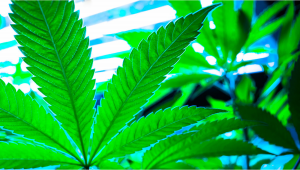
- 1. How do cannabis plants use light?
- 2. Understanding p.a.r
- 3. The different types of grow lights
- 3. a. Compact fluorescent lamps
- 3. b. High-pressure sodium
- 3. c. Metal halide
- 3. d. Led
- 4. How many lights do i need?
- 5. Top tips when selecting grow lights
- 6. In conclusion
Growing Cannabis indoors involves providing your plants with ideal temperatures, humidity, nutrients, and lighting. Understanding how plants convert light into energy, which types of grow lights they prefer and how light is measured will give you an advantage when it comes to producing the ultimate indoor crop.
In this article, we explain all about grow lights, explaining P.A.R, what to consider, our top tips, and more.
1. How Do Cannabis Plants Use Light?
For a long time it became the industry standard to measure the intensity of a bulb using lumens. The value of one lumen is equivalent to one candle, so when you see a 400w HPS bulb that has a rating of 36,000 lumens, this indicates this light is the equivalent of 36,000 candles burning at once. The human eye will perceive light at a frequency of 555 nanometers (green light). The value that is given to the grow bulb will only explain the number of lumens as far as the human eye is concerned.
Unfortunately, Cannabis plants depend on photoactive radiation (P.A.R) and not lumens, which have radically shifted the way in which manufacturers are producing horticulture lamps. How much red, blue and white are present in what bandwidth will be the difference-maker when growing indoors, which is one of the main reasons LED lights have become the preferred choice for those who can afford the investment.
So, now you know the type of light that cannabis plants need, but how exactly do they use it? Well, you probably remember the basics from science class in school. It all boils down to photosynthesis. During this process, plants perform the incredible feat of transforming gaseous carbon from the atmosphere into solid carbon that they use to build sugars and create energy. They used some of this newly-formed energy to power their own cells, allowing them to grow, flower, and reproduce. However, not all of this sugar remains in the plant, or even above ground. Plants use their root system as a form of tap that trickles sugars, amino acids, and other compounds into the area of the soil surrounding their roots. This act attracts several beneficial lifeforms, including bacteria and fungi. In return for the flow of nutrition, these critters help to defend plants against certain diseases and even help them acquire nutrients and water.
2. Understanding P.A.R
Photoactive radiation plays a huge role in the efficacy of a grow bulb, as well as the function of photosynthesis. As beams of light strike the surface of the plants, hydrogen is stripped away from a water molecule, resulting in the combination of hydrogen and carbon.
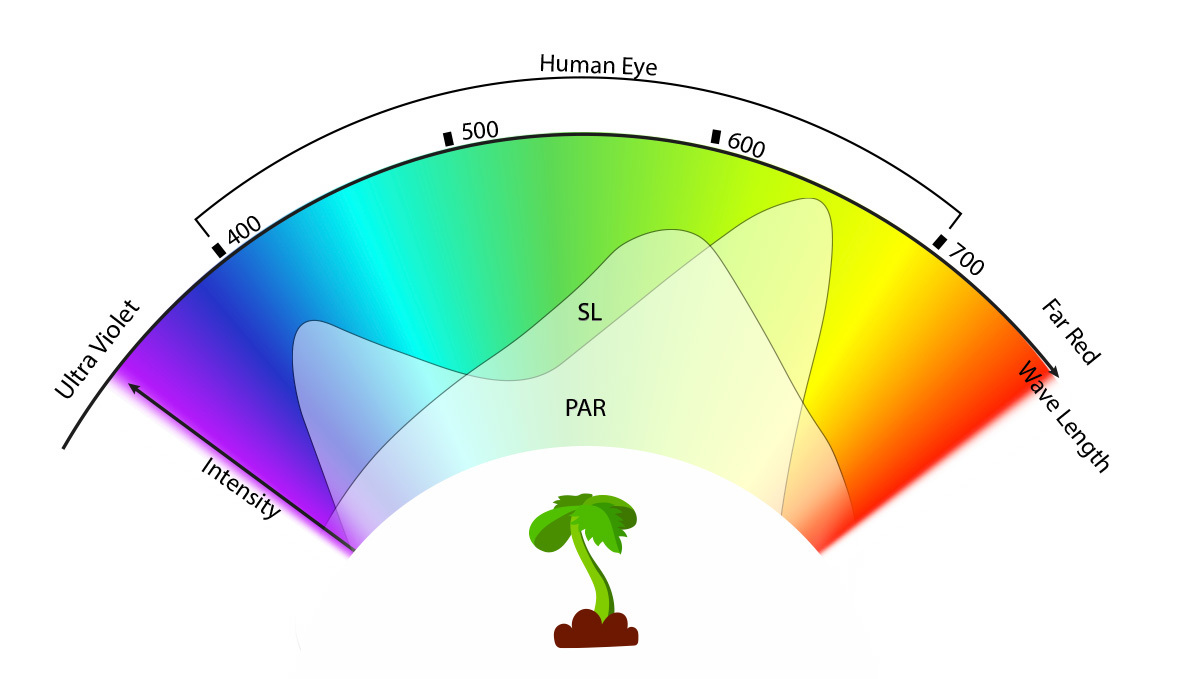
This process creates a sugar that is then used as a form of energy and to emit to the roots to attract beneficial bacteria and fungi.
What To Remember
- High-pressure sodium has the lightest output in green, yellow, and orange.
- UVA and UVB are below 400 nm yet have an effect on the potency and cannabinoids.
- Most evidence seems to suggest 400-700 nm is key for horticultural lighting.
3. The Different Types of Grow Lights
If you are new to growing Cannabis indoors, or have previous experience outdoors and plan to grow inside, then you may not be fully aware of the different types of horticulture lighting available. Investing in an inadequate light can be very counterproductive and oftentimes a waste of resources, time, and money. When it comes to light-hungry plants such as Cannabis, the important thing to remember is lighting intensity.
Compact Fluorescent Lamps
Commonly known as C.F.L, these cheap and low-budget lights will produce a soft light. Growers working with these will use a bulb during the vegetative period that is 6400k (blue spectrum) and then will adjust the bulb to a 2700K (red spectrum).
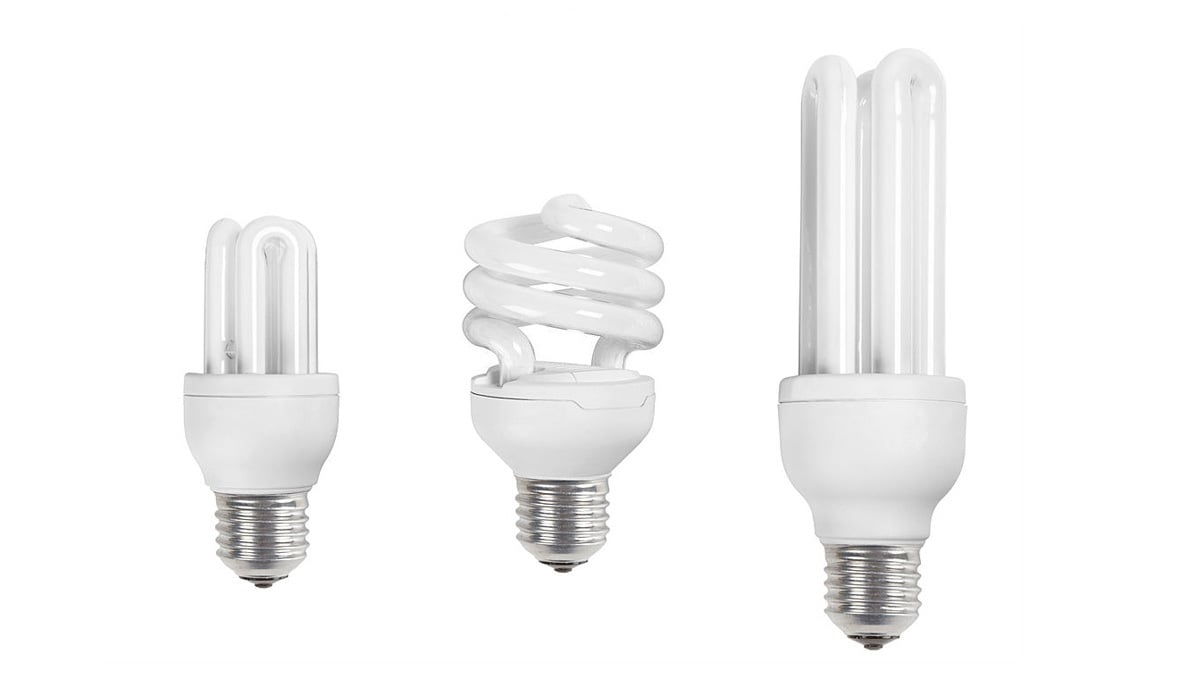
Due to the fact that these lights are very soft, and lack the intensity and P.A.R required by flowering Cannabis plants to pack on weight. It is better to use compact fluorescent lights for the cloning area, vegetative area, or for allowing seedlings, clones, and mothers to grow at a slow rate, with very short internodal spacing.
What To Know
- A very soft light that is better for keeping plants in a slow state of vegetation.
- C.F.L will use very little power and generate a small amount of heat.
- The bulbs need to be manually changed over for 18/6 or 12/12.
- The cheapest out of all of the available grow lights on the market.
- The lights will run very cool and touching the bulb is no issue.
- Plug in and hang up with no ballast required.
- Available from 100-300w models.
High-Pressure Sodium
The most commercially used light for growing Cannabis indoors, and classed as a H.I.D light (High-Intensity Discharge) these types of horticultural lamps require a ballast to power up the Sodium bulb. H.P.S will produce a far more intense light that Cannabis plants prefer.
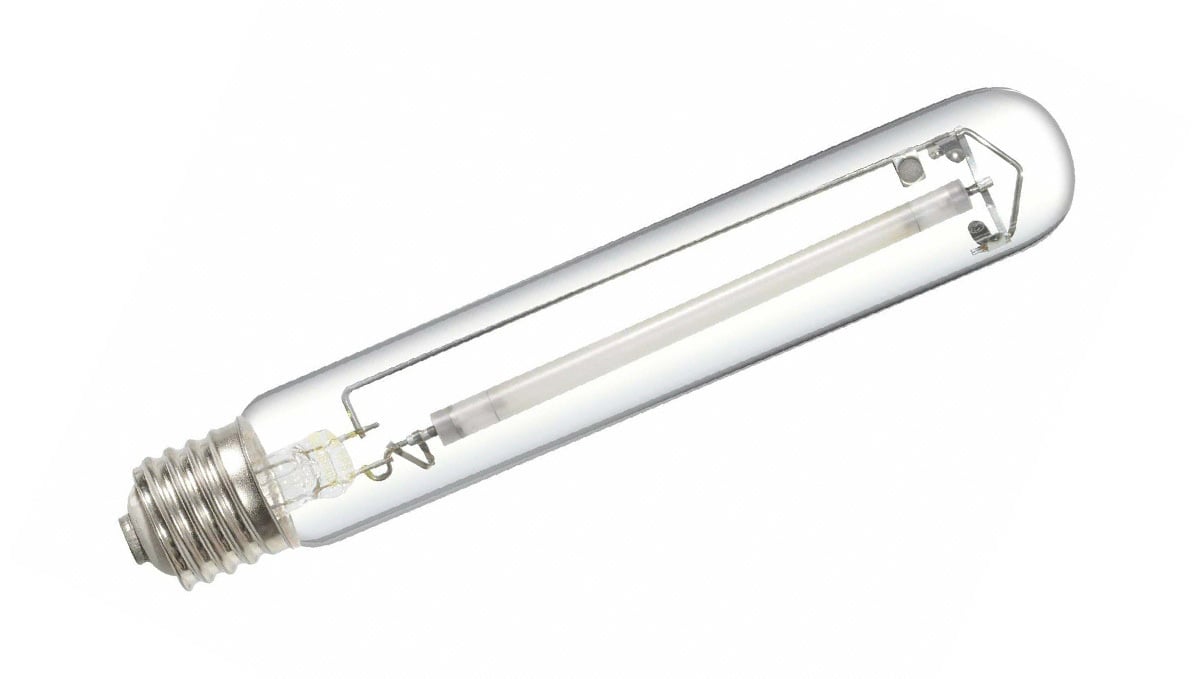
When using H.P.S bulbs, they are designed to be used universally for both the vegetative state and the blooming phase, meaning there is no need to change any bulbs or ballasts over once the plants are growing. When flowering Cannabis indoors a 600w H.P.S and above will be the most effective for producing weight.
What To Know
- H.P.S setups can be expensive and available in 250w, 400w, 600w, and 1000w models.
- Ballasts will produce a great amount of heat, so it is important to keep them off the floor.
- The bulbs will give a measurement in lumens and not P.A.R.
- H.P.S bulbs can produce a lot of heat.
- Digital ballasts allow for a cooler-running system.
- It is possible to switch power consumption using a digital ballast.
- The spectrum produced by Sodium bulbs is not as efficient as LED.
Metal Halide
These are basically the lamps that are used to illuminate car parks and football stadiums. These lamps will emit a spectrum that is ideal for the vegetative phase. However, it will require a HPS or LED for flowering due to the lack of red spectrum the plants require for flowering.
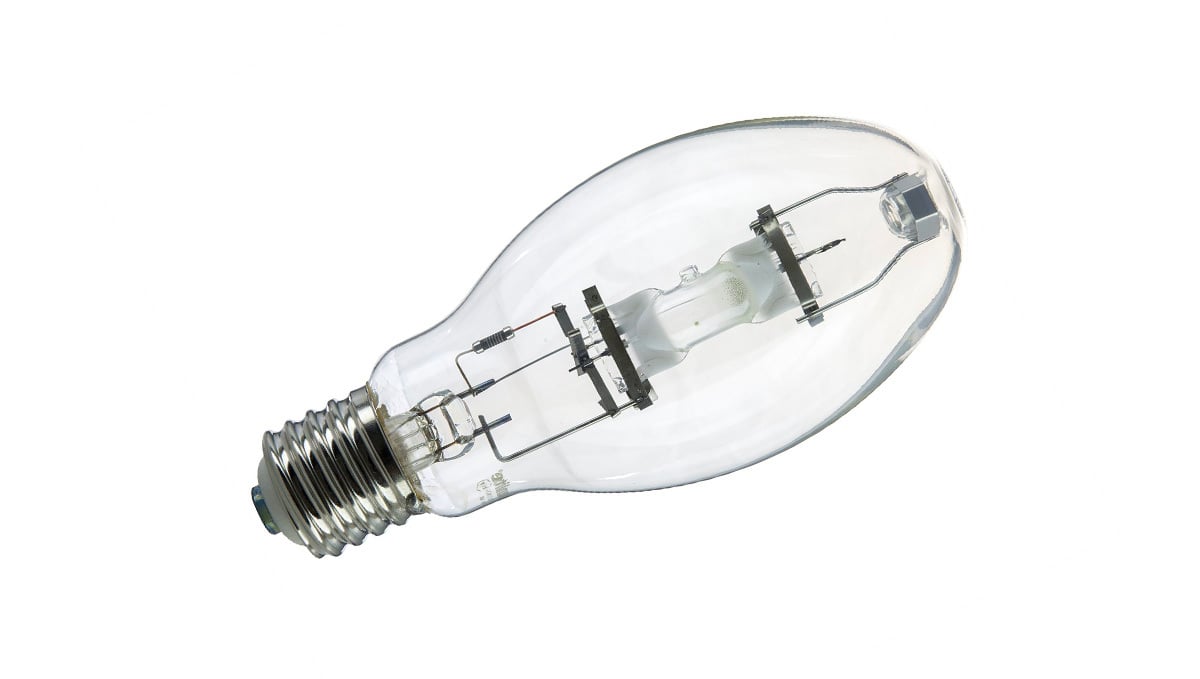
Metal halide also requires a ballast to power similar to HPS, which is one of the reasons these two lights have been paired together by indoor growers for decades.
What To Know
- Very effective for the vegetative stage, seedlings, clones, and mother plants.
- Needs to be used in collaboration with a lamp that has the bandwidth for flowering.
- Will produce a rich blue light that will cause lush growth, with short internodal spacing.
- The ballasts can get very hot especially when being used for 18 hours per day.
- The bulbs will also emit a large amount of heat.
- A very old school grow light that has recently become popularized again.
LED
At first LED struggled to establish themselves as a solid horticultural grow light, however, with recent innovations and new tech being added all the time, LEDs have easily become the most efficient way to grow Cannabis indoors.
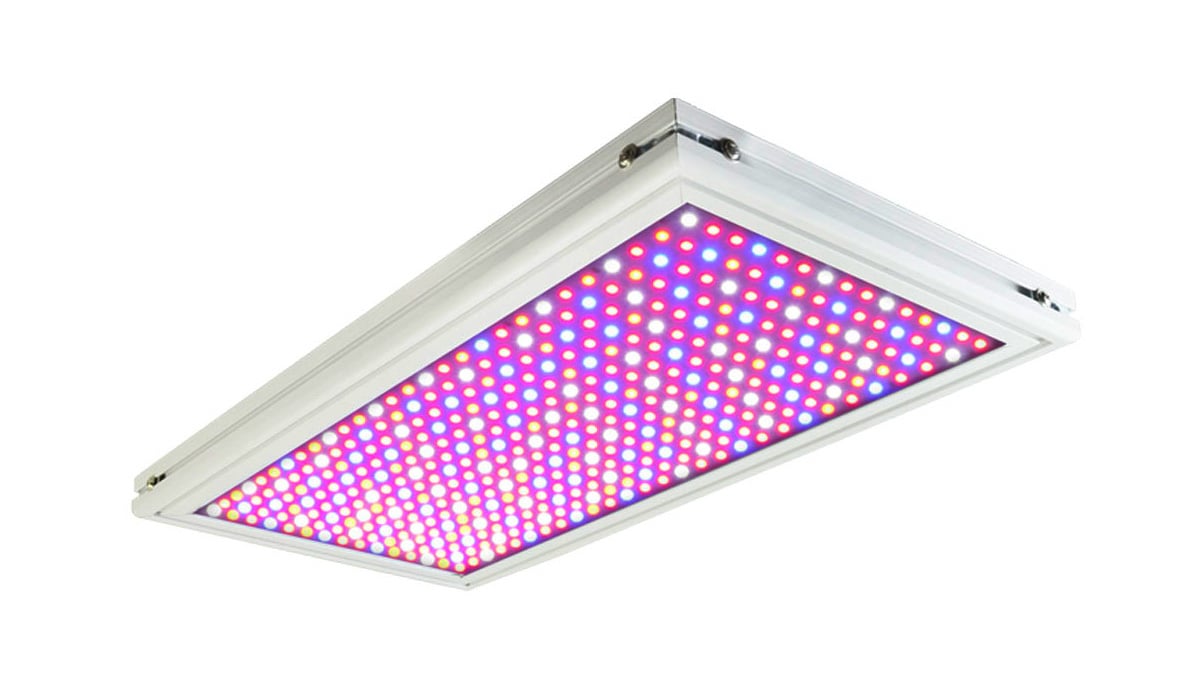
They will come with a large price tag, yet are well worth it in terms of the advantages associated with electricity consumption, spectrum availability, lack of excess heat they cause plants, many are now silent running with passive-cooled designs integrated.
What To Know
- The intensity of the light is measured in P.A.R and not lumens.
- LEDs are very expensive in comparison to H.P.S or M.H.
- The spectrum is specifically designed for growth and bloom.
- Some models have the option to program spectrum output.
- Sunrise and sunset times can be mimicked with LED controllers.
- Passive-cooled technology allows for a silent-running light that stays cool.
4. How Many Lights Do I Need?
An efficient and high-quality grow lamp and reflector should be able to cover a square meter. The spread of light will be increased by how high up you have your reflector and bulb, and the ideal distance when using hot burning H.I.D lights is 60-90cm with fans blowing across the tops of the plants.
What To Consider
• The amount of heat generated by the ballast and bulbs.
• How much room the lights and reflectors will take up.
• The amount of height that you have to work with.
• If you are growing in a vegetative state or flowering.
• Electricity consumption and bills.
5. Top Tips When Selecting Grow Lights
1. Be sure to check the P.A.R output of the light you are thinking of buying. It is photoactive radiation that Cannabis plants are responsive to and not the number of lumens.
2. Compact fluorescents are low powered, produce low heat, and are ideal for rooting clones and seedlings.
3. If you are choosing to use H.I.D lighting, then pairing metal halide with high-pressure sodium will allow you to provide the most effective spectrum bandwidth.
4. Ballasts can become extremely hot and should be wired correctly, and kept off the floor and out of danger.
5. LED lights are an expensive investment, however over time the reduction in electricity bills, increased yields, and more terpene and cannabinoid production is well worth it.
6. In Conclusion
The choice of indoor lighting is far greater than before, so make sure you do plenty of research before investing. Depending on your budget, experience, or grow space, you may be encouraged to use different lights at various times. Good luck with your next indoor crop and finding the ideal indoor set up for you and your garden.








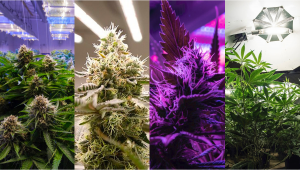
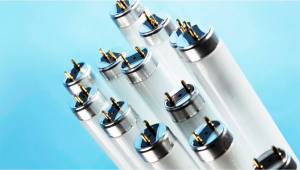
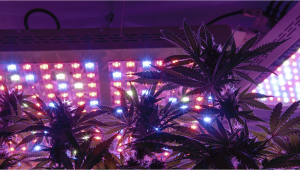

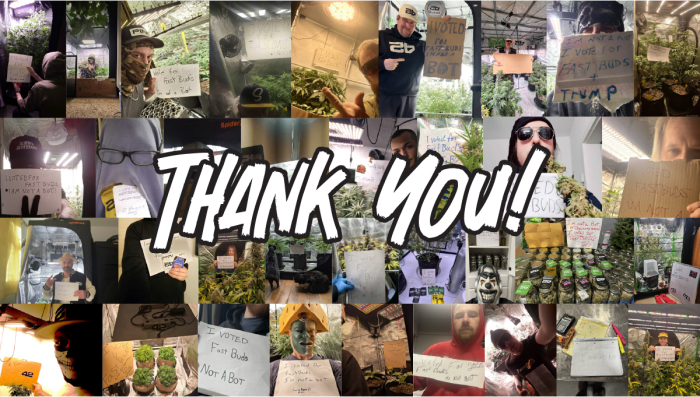

Comments